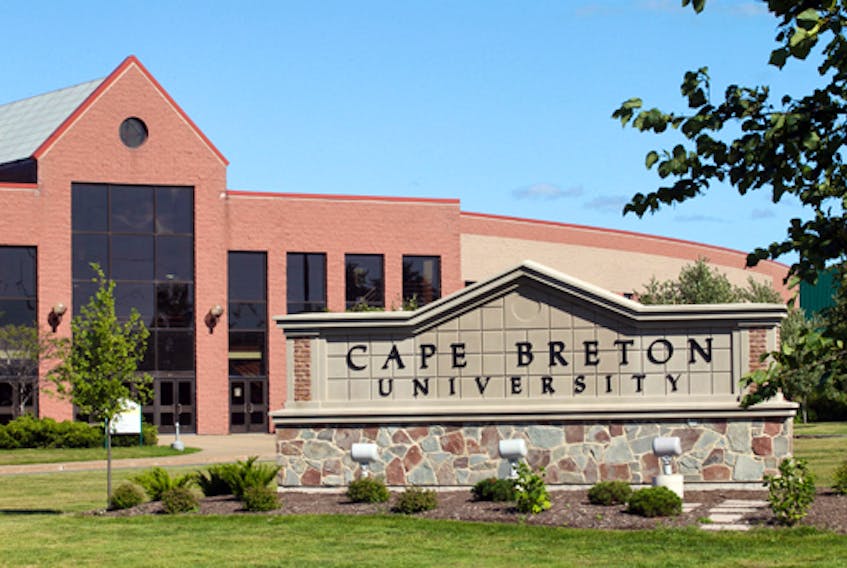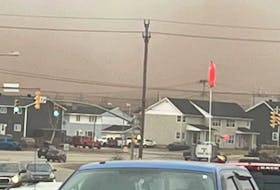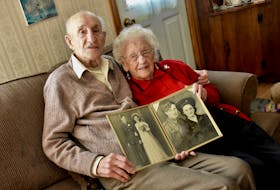SYDNEY, N.S. — A Cape Breton University student hasn’t been able to enjoy a meal in his apartment since moving to Sydney from India in May.
This isn’t because he can’t find ingredients or spices he uses for Indian meals or because his stove isn’t working. It’s because of continued harassment from a non-Indian living near him and his roommates.
“They’ve yelled at us to move out. They yell that they don’t like me and they don’t like the smell of our food. If we try to cook, they bang (on the walls, windows) and yell until we stop,” said Arjun, which is not his real name.
“I don’t need an alarm clock because they wake us up every morning, yelling at us and banging. They wake me up in the middle of the night.”
Arjun’s been woken at 6 a.m. with one of the aggressors banging on his door, threatening to break in. Other times, the aggressor bangs on his bedroom window, screaming. Arjun said he has no idea what instigates these verbal attacks, which happen daily. The only thing he can think of is he and his roommates are from India.
They’re not alone. Arjun and some other Indian students attending Cape Breton University spoke to the Cape Breton Post about the racist harassment they deal with on the condition of anonymity, for fear the attacks will get worse.
“They’ve yelled at us to move out. They yell that they don’t like me and they don’t like the smell of our food."
— CBU student
ONLY A FEW
Another reason they don’t want to be named is they don’t want people to think they are saying Cape Bretoners are all racist. Like Arjun, they are all quick to point out it’s only a few local residents committing the harassment.
“My first experience in Cape Breton was very good. Everyone was very nice,” said Arjun.
“The whole neighbourhood has been very good to us except (these two people) … It’s my bad luck I live near them.”
Vihaan (not his real name) has also dealt with some issues of racism at one of his part-time jobs — mostly from customers.
A few times, customers ignored him when he called them from a lineup to his cash which had no people at it. To him and some co-workers, it was obvious they were ignoring him to go to a cash with a white clerk.
Some customers have spoken rudely to him, accusing him of not understanding English, and before Vihaan could determine if it was racially motivated, another co-worker or manager spoke up in his defence.
“She said to me, these things do happen here and told me not to take it to heart,” he said.
Vihaan’s supervisor has also told him to tell him of any instances like this so management can deal with it.
However, not all of Vihaan’s co-workers have been supportive. One in particular has been racially harassing him, even though Vihaan has tried to educate him about his culture and his Sikh religion.
“Even after I told him we wear a turban and don’t shave our beards because we don’t cut our hair (for spiritual reasons) he told me he would hold me down, shave my beard and pull off my turban,” Vihaan explained.
“But most of the people are nice here; 90-95 per cent of them are nice, kind and helpful… We shouldn’t judge the community on the actions of a few people … but racism does exist here.”
“Being brown is a very rare thing here." — Ruby Ramji, associate professor CBU
NOT SURPRISED
Ruby Ramji is an associate professor of religious studies at Cape Breton University. The Toronto native is of South-Asian descent and said she isn’t surprised some Indian students are dealing with racism like this as she’s experienced it over the 13 years she’s lived in Cape Breton.

“Being brown is a very rare thing here. The only brown people I knew when I got here, other than me, were the doctors at the hospital. Either I was lumped with them, I was considered Mi’kmaq or (yelled at.) My first day on campus I was called a “f----kg Paki” (by a student),” said Ramji, who didn’t hesitate to respond to the comment in a way that indicated she wouldn’t tolerate such remarks.
“I still get it but it’s usually in the form of, 'Why couldn’t you get a job where you come from? Did you have to take a job from somebody else?' And I’m like, 'How many people with PHDs in religious studies happen to be living in Cape Breton? They could have totally applied for the job, I wouldn’t have had a problem with it.'”
Like the Indian students, Ramji said it’s only a few Cape Bretoners doing this and believes the majority of people are happy the international students are here.
“I think the international students, the kind of harassment they are encountering … it’s because of a lack of understanding, there is a lack of knowing (about their culture). And I think it really is only five per cent (of Cape Bretoners racially harassing them),” said Ramji who has researched immigration issues.
“I think the other Cape Bretoners, especially the older Cape Bretoners, are happy to meet international students and have them here … There is an understanding (with the majority of local residents) that the island needs rejuvenation, it needs younger people, it is good for the island (to have international students).”
FEAR FACTOR
Ramji believes it’s “fear” that leads to racism and thinks, in a few years, there will less fear as locals get used international students living in Cape Breton.
“This whole idea where you have this fear of, 'Oh, they’re taking our lands, they’re taking our jobs… our money and they’re using our system.' I think there’s a constant fear that there’s just not enough to go around for everybody,” she said.
“I think in five years, the mentality of someone who hasn’t met anyone from India will change dramatically … I find that fear of others comes from not knowing, not ever having met someone who’s different or having them as a friend or co-worker. But once you start talking to other people, you realize they’re just like you. And they have the same goals, the same problems.”
"I haven’t had anyone say anything racist to me. At Tim Hortons someone will come to you and say 'hi' and talk to you. They are all very nice.”
— Akshay Sharma, CBU student
POSITIVE EXPERIENCE
For some Indian students, like Akshay Sharma, their Cape Breton experience has been nothing but positive.

Two days before leaving Delhi, India, Sharma posted on Facebook looking for a room to rent. Mary and Ron MacDonald messaged him about their rental unit in New Waterford, where they have other international students.
The MacDonalds not only rented Sharma the room, without a deposit, Mary picked him up from the airport, offered him food when he got to the house and told him he could pay rent in a week, after his Canadian bank accounts were set up.
Mary and Ron have also been helping Sharma find work and when they found out he plays guitar, Ron took him to meet a friend of theirs that makes custom guitars. The friend sold one to Sharma for $100, a very discounted rate because he is an international student currently with no income.
“I feel lucky I found them,” he said, noting he has nothing but praise for the people of New Waterford.
“I don’t know why some people say New Waterford is a bad place … When I am walking down the street, people are honking at me, and they’re smiling at me and greeting me. I haven’t had anyone say anything racist to me. At Tim Hortons someone will come to you and say 'hi' and talk to you. They are all very nice.”
Arjun and Vihaan hope that by telling their story it might help stop the racial harassment.
“To solve any sort of problem, what’s the first step?” said Vihaan. “It’s to acknowledge the problem, then you can see what you can do to solve the problem.”
Quick Facts
- Cape Breton University Enrolment 2018-2019
- Number students at CBU: 4,700
- Number of Canadian students: 2,059
- Number of international students: 2,641
- Number of countries students are from: 40
- From India: 1,797 (highest)
- From China: 564 (second highest)
- From Vietnam: 68 (third highest)
- Estimated money spent locally by international students: $60 million annually
RELATED:
International students at Cape Breton University helps local economy
Wave of international students making Cape Breton University Canada’s most diverse
Keeping international students in Cape Breton – study highlights pros, challenges
Highest enrolment ever for Cape Breton University, thanks to international students









